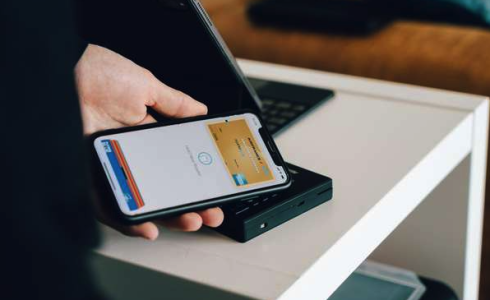Government’s move to regulate digital wallets deals blow to cheque payments
- Replies 47
The way Aussies pay for things is changing, and it's time to say goodbye to one that has been around for many years: cheque payments.
The Albanese government has announced draft legislation to regulate digital payment methods like Apple Pay and Google Pay in the same way as cards. They're also taking steps to phase out cheques entirely within the next few years.
The draft legislation would allow the Reserve Bank to control new and emerging digital payment services to protect consumers and promote competition.
For many, this may seem concerning. But Treasurer Jim Chalmers has reassured that digital payments are safer, more convenient and will benefit all Australians in the long run.
'As payments increasingly become digital, our payments system needs to remain fit for purpose so that it delivers for consumers and small businesses,' he said.
'We want to make sure the shift to digital payments occurs in a way that promotes greater competition, innovation and productivity across our entire economy.'
Cheque usage has been declining steadily. According to government data, in the June quarter of 2023, 35 per cent of all card transactions were carried out using digital wallets—a significant increase from the 10 per cent recorded in early 2020.
Moreover, Reserve Bank of Australia (RBA) data indicates that nearly two-thirds of younger Australians—aged 18 to 29—make mobile payments. This marks a substantial rise from the less than 20 per cent recorded in 2019.
Mobile payments are on the rise even among older Aussies, those aged 65 and over. Approximately nine per cent of the age group regularly use mobile payment methods, three times the proportion seen in 2019.
The public consultation for proposed changes to the Payment Systems (Regulation) Act of 1998 began on Tuesday, October 10. This update aims to modernise the definitions of 'payment' and 'payment systems' to encompass new payment methods widely used now and in the future.
In June, Dr Chalmers mentioned that cheque payments will be gradually phased out by 2028. A goal has been set to end the use of cheques completely in 2030.
He explained that at present, nearly all retail and personal cheque transactions (98 per cent) can be efficiently handled through Internet or mobile banking, and this also applies to all cheques used in institutional and commercial settings (100 per cent).
Dr Chalmers emphasised that retaining cheques within the payment system has become increasingly expensive to manage a declining portion of transactions.
This news follows a growing trend among retailers and financial institutions to embrace cashless transactions.
Recently, we shared information about a major bank's decision to shift towards digital-only payment systems. This change will involve discontinuing cash, check, and phone payments for their customers.
For more information on this story, read the full article here.

What are your thoughts on this news, members? Do you regularly use cheque payments? If so, do you agree that replacing them with digital methods is better? Share your thoughts on Australia's move to 'cashless' transactions in the comments below!
The Albanese government has announced draft legislation to regulate digital payment methods like Apple Pay and Google Pay in the same way as cards. They're also taking steps to phase out cheques entirely within the next few years.
The draft legislation would allow the Reserve Bank to control new and emerging digital payment services to protect consumers and promote competition.
For many, this may seem concerning. But Treasurer Jim Chalmers has reassured that digital payments are safer, more convenient and will benefit all Australians in the long run.
'As payments increasingly become digital, our payments system needs to remain fit for purpose so that it delivers for consumers and small businesses,' he said.
'We want to make sure the shift to digital payments occurs in a way that promotes greater competition, innovation and productivity across our entire economy.'
Cheque usage has been declining steadily. According to government data, in the June quarter of 2023, 35 per cent of all card transactions were carried out using digital wallets—a significant increase from the 10 per cent recorded in early 2020.
Moreover, Reserve Bank of Australia (RBA) data indicates that nearly two-thirds of younger Australians—aged 18 to 29—make mobile payments. This marks a substantial rise from the less than 20 per cent recorded in 2019.
Mobile payments are on the rise even among older Aussies, those aged 65 and over. Approximately nine per cent of the age group regularly use mobile payment methods, three times the proportion seen in 2019.
The public consultation for proposed changes to the Payment Systems (Regulation) Act of 1998 began on Tuesday, October 10. This update aims to modernise the definitions of 'payment' and 'payment systems' to encompass new payment methods widely used now and in the future.
In June, Dr Chalmers mentioned that cheque payments will be gradually phased out by 2028. A goal has been set to end the use of cheques completely in 2030.
He explained that at present, nearly all retail and personal cheque transactions (98 per cent) can be efficiently handled through Internet or mobile banking, and this also applies to all cheques used in institutional and commercial settings (100 per cent).
Dr Chalmers emphasised that retaining cheques within the payment system has become increasingly expensive to manage a declining portion of transactions.
This news follows a growing trend among retailers and financial institutions to embrace cashless transactions.
Recently, we shared information about a major bank's decision to shift towards digital-only payment systems. This change will involve discontinuing cash, check, and phone payments for their customers.
For more information on this story, read the full article here.
Key Takeaways
- The Albanese government plans to regulate digital payment wallets like Google Pay and Apple Pay similarly to other payment systems.
- The draft legislation would allow the Reserve Bank to control new and emerging digital payment services, purportedly to protect consumers and promote competition.
- Public consultation for amendments to the Payment Systems (Regulation) Act 1998 opened on October 10, aiming to update the definition of 'payment' and 'payments systems' to include a broader range of current and future payment methods.
- As part of these legislative changes, the government plans to wind down cheque payments by 2028, with requirements for their use removed by 2030, reflecting a move towards digital payment methods.
What are your thoughts on this news, members? Do you regularly use cheque payments? If so, do you agree that replacing them with digital methods is better? Share your thoughts on Australia's move to 'cashless' transactions in the comments below!








